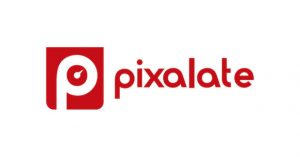Germany's Rocky Road To Programmatic: The Ad Trader Conference Overview
by Ciaran O'Kane on 30th Apr 2013 in News


We hosted our third Ad Trader Conference in Berlin two weeks ago. It was an interesting day, and offered up some fascinating debate and talking points. Looking in you would think nothing has changed since the first Ad Trader Conference, but a cursory look under the bonnet reveals that all is not what the sales houses are saying publicly - with significant volumes currently being traded programmatically.
Speaking Premium in Germany
We deliberately set out to frame much of the discussion at this year's conference around programmatic premium/guaranteed/direct. German Sales Houses do not like (publicly, at least) the idea of impression-level buying. And you can understand why. The market has the highest CPMs of any European market. The sell-side fear price erosion, and many are still highly suspicious of this new wave of US innovation.
This was all referenced in Philip Missler's keynote early in the day. Missler has always been outspoken about the recent wave of ad tech innovation, and outlined this in his presentation. He stressed a one-size-fits-all strategy will not work in Germany - and instead a more customised approach will be required in the current market environment. Having covered the German market for some time, ExchangeWire feels it was a fair assessment. If you look at the UK, German and French markets they could not be more different. I don't think the keynote was a slight on US companies. Afterall Interactive Media is using AppNexus as its performance ad server, and its exchange solution - and the last time I checked AppNexus was "made in New York".
Keeping on the premium theme, we had a number of vendors working in that area present at the event. Of particular interest was Adslot, the programmatic direct vendor currently working with a number of global publishers in automating premium selling. They are part of a whole wave of vendors - isocket, SSPs et al - trying to dominate this publisher revenue "sweet spot". If there was any feature ad tech company that could do well in Germany it is this category.
Premium is the lingua franca of digital advertising in Germany. If you have a data-driven solution then the UK is the best starting juncture in Europe. If you are automating the premium layer then Germany (and the Nordics) are your best entry points presuming you can overcome the inherent difficulties in getting into those markets. The UK market is a DR dominated landscape - where Germany still has huge upside on premium. It is quite unbelievable that a local German company hasn't jumped into this space already - given their unique ability to build excellent localised propositions.
Another fascinating presentation came from SHiftForward's Paulo Cunha, who discussed the importance of functional ad forecasting when dealing with automating the premium layer. To get a flavour of this presentation, you can have a look at a recent piece he did for us on that very subject.
Adapting Real-Time Trading In The Commercial Environment
With very few publishers in Germany doing anything of note in terms of ad trading or progressive yield optimisation, there are no case studies to demonstrate the value of this approach. But on a European basis there are a few notable examples. De Telegraaf is probably the poster child of this approach. Now a partner of Rubicon, Martin Van Der Meij, Head of Revenue Development took the stage with RP's Jay Stevens and Neal Richter. During a 20 minute Q&A session, Van Der Meij outlined De Telegraaf's new approach to automated buying and selling.
The approach of the De Telegraaf was essentially to abandon the traditional waterfall style of allocating inventory - and instead bring direct, indirect and all sources of demand into an all-in auction thus increasing yield and maximising revenue. By bringing in direct (sold by the sales team) De Telegraaf was able to bid on its own inventory, increasing bid density in the auction. There are a number of smart publishers doing something similar, but on this type of scale De Telegraaf is out on its own
It's an approach that many German publishers would balk at - and not likely to make it through committee. But still it did make many of the big Sales Houses think about how they are approaching this space - and in conversations after the conference it was certainly one of the things sell-side execs wanted to chat about.
Things Are Not Always As They Seem
During a spirited publisher panel, where we were again treated to the public line that the German market must find its own way of trading. RTB won't work, Impression-level buying won't work. But yet there are billions of premium .de impressions sitting on Adx - albeit all sold blind or bundled into some non-transparent premium bucket with no detail passed to the buy-side.
This is all fine. But to be protesting about price erosion while engaging in this type of practice is a little short sighted. Maybe Google might persuade them to be more transparent - and the flood gates will inevitably open. It feels as though the the Sales Houses are finding their way, and will eventually reach a consensus on how programmatic buying and selling will pan out in the next six-to-twelve months. The choice of vendors they go with will be interesting to say the least - given German publishers' love/hate relationship with Google.
A taster for ATS London
The most interesting discussion of the day was not a German Sales House panel nor a sell-side debate - it was instead a conversation framed around the customisation of marketing and advertising technology. Exploring the concept of bespoke versus off-the-shelf, this fireside chat examined how service providers in the future will need to be re-engineered to help advertisers navigate the myriad of options open to them from a technical and analytical perspective.
Featuring Zalando's Oliver Roskopf and IPONWEB's Derek O'Neil, a number of progressive themes were addressed - particularly around the intersection of advertising and marketing technology, something which Terry Kawaja highlighted in his presentation the week before at the AppNexus summit in San Francisco.
Expect to see a lot of that at this year's ATS London, as we try to move the narrative beyond the narrow confines of programmatic display and into a bigger focus on how ad technology can become a key constituent of the martech stack.
Progress in a roundabout kind of way
What about the German market then? Some say it hasn't moved on. But if you look at some of the innovation in the market (particularly on the buy-side) and some of the behind-the-scenes strategy of German Sales Houses you can see that a change in the way media is traded is imminent. It won't look like the UK or the US, it will be the German way. What that will look like is anyone's guess. But if you were to venture an opinion, it will likely be built around premium and be a much more customisable strategy. If there ever was a barometer in the German advertising market then it is Thomas Falk, and the fact that he is now diving into this space suggests that that local market will hit its stride soon.
Ad NetworkAd ServerDACHDisplayExchangeTrading








Follow ExchangeWire